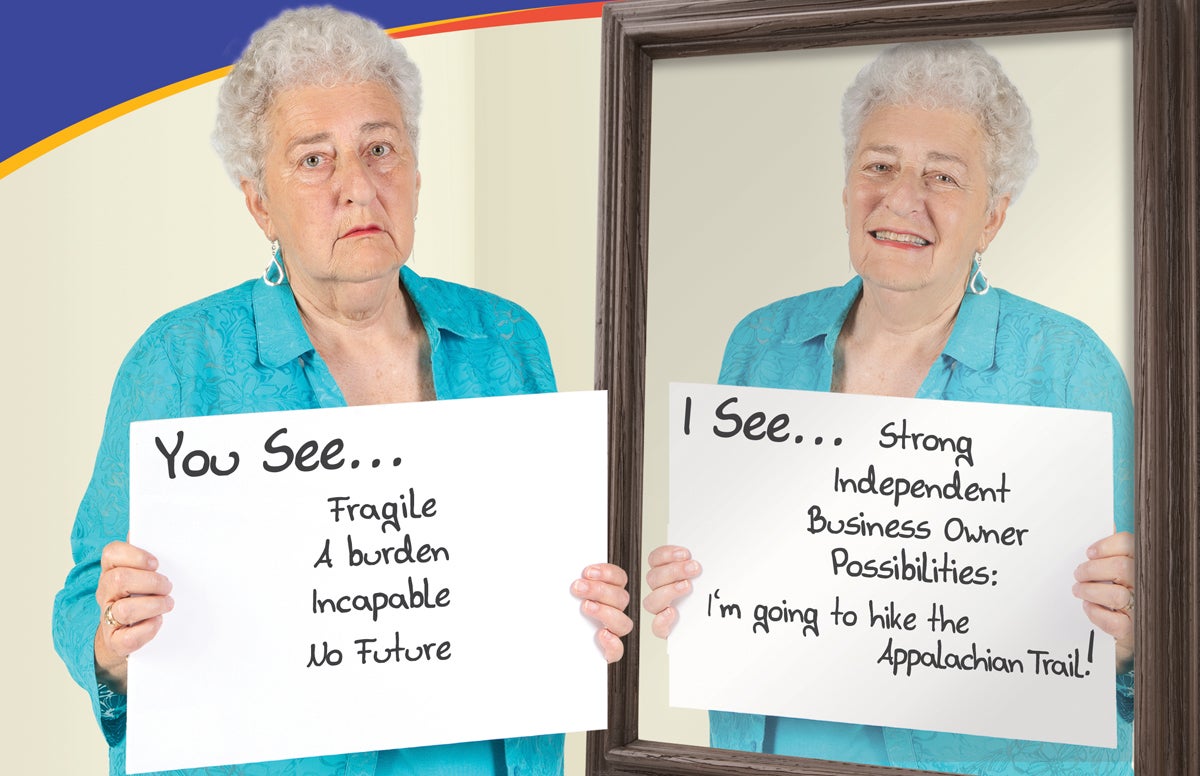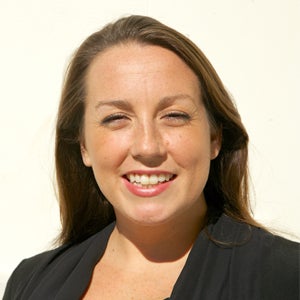In York County, serving older adults means changing attitudes first

Elaine Burns, of Deer Lake, Pa., takes photos while biking with her dog J.J. Dog in Ohiopyle State Park in Ohiopyle, Pa. (AP Photo/Gene J. Puskar)
To address some of the barriers for older adults, one foundation in York is trying first to change peoples perceptions about aging.
When it comes to aging, we know that older adults face challenges of mobility, housing, and isolation that impact their quality of life. With one in six residents in the state of Pennsylvania being 65 or older, cities and advocates are working to make sure communities are accessible for all ages.
To address some of the barriers for older adults, one foundation in York is trying first to change people’s perceptions about aging.
The York County Community Foundation was one of six groups selected nationally to participate in the Livable Communities for All Ages Learning Collaborative, a year-long program that offered training, networking, workshops and other assistance.
Out of the learning collaborative and previous programs, the foundation began Embracing Aging, an initiative to help people change how they think about aging and to ensure that all people are considered — especially those that are 50 and older — when it comes planning and implementing anything in the community.
“We recognize that in a livable community you need to improve housing, you need to improve transportation, and health and well-being opportunities,” said Cathy Bollinger, Managing Director of Embracing Aging. “But for us, we wanted to first focus on attitudes because we feel it’s imperative. We can’t have the other things without first people respecting and honoring older adults for who they are, and their value in the community.”
To find out how people in York County perceive older adults and, generally, their attitudes on aging, the initiative surveyed about 600 adults, 18 and older. They found that about 60 percent of people said they had a positive attitude toward older adults. But when it came to attitudes about their own aging, only 36 percent of people said they had a positive outlook about the aging process. The research also found that quality interactions, not quantity, between people of different generations leads to more positive attitudes when it comes to aging.
Bollinger said the research from the survey validated what she already knew: that people are uncomfortable talking about aging, have negative perceptions around their own aging and are obsessed with the idea of youth. She said some older adults in the community say they feel like antique cars: they’re fine to take out for a Sunday drive, but you can’t get much mileage out of them during the week.
Bollinger admits that it’s likely to be an uphill battle to change people’s perceptions about aging and it will be difficult to reach everyone. York County has a population of about 441,000, with 34 percent of residents 50 or older and 15.5 percent of residents 65 or older.
“We have a lot of people living in suburbs and rural areas. How are they going to continue to have quality of life, especially if they are isolated, with few neighbors and aren’t able to drive anymore?” asked Bollinger.
To help change the community’s perceptions, Embracing Aging has launched new programs, starting with a public awareness print campaign called You See…, I See. The campaign shows an older adult holding a sign titled “You See…” with attributes like: fragile, a burden, and incapable. Contrasted that, the same adult is looking in a mirror with a sign that reads “I See…” with a different list of attributes like: strong, independent and ‘I’m going to hike the Appalachian Trail.’
The campaign is expected to run on local public transportation beginning in September.

Embracing Aging is also working on an age-friendly designation program, where businesses, organizations, and schools districts could earn a special community status by making modifications to improve accessibility to people of all ages. For example, adding magnifying glasses and chairs to grocery aisles, widening pathways, adjusting lighting, changing fonts or rethinking buy one, get one deals for people who live alone and do not want too many perishables. Bollinger said she hopes to roll out the age-friendly designation program by the end of 2015.
Other programs already underway include an interactive training session to address aging biases and myths, and a planned community conversation with Dr. Bill Thomas, an author and leader in geriatric medicine, in January.
WHYY is your source for fact-based, in-depth journalism and information. As a nonprofit organization, we rely on financial support from readers like you. Please give today.



